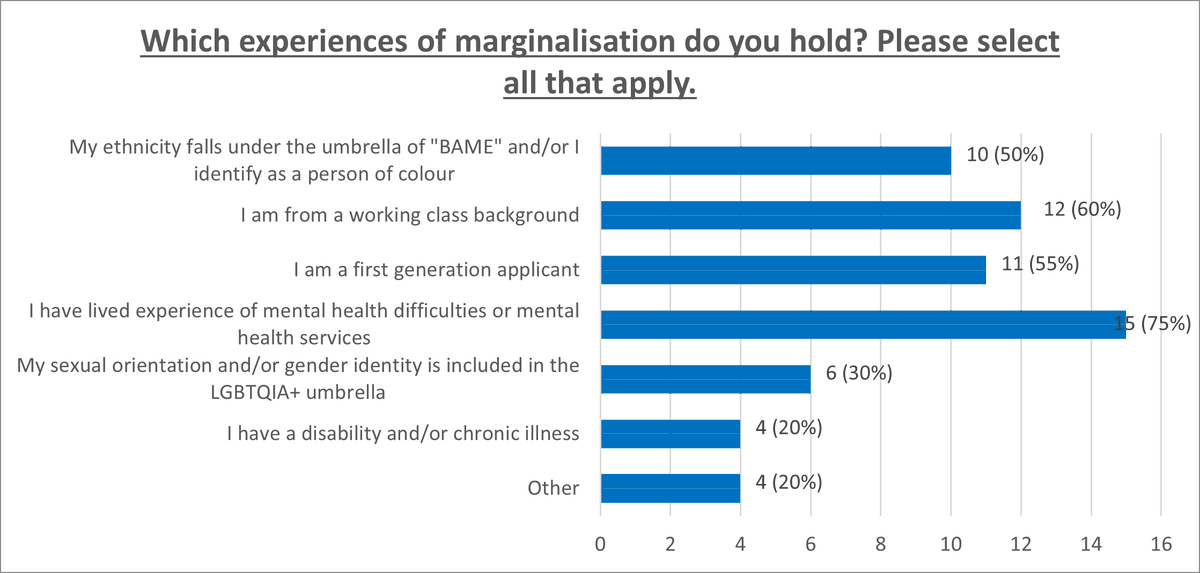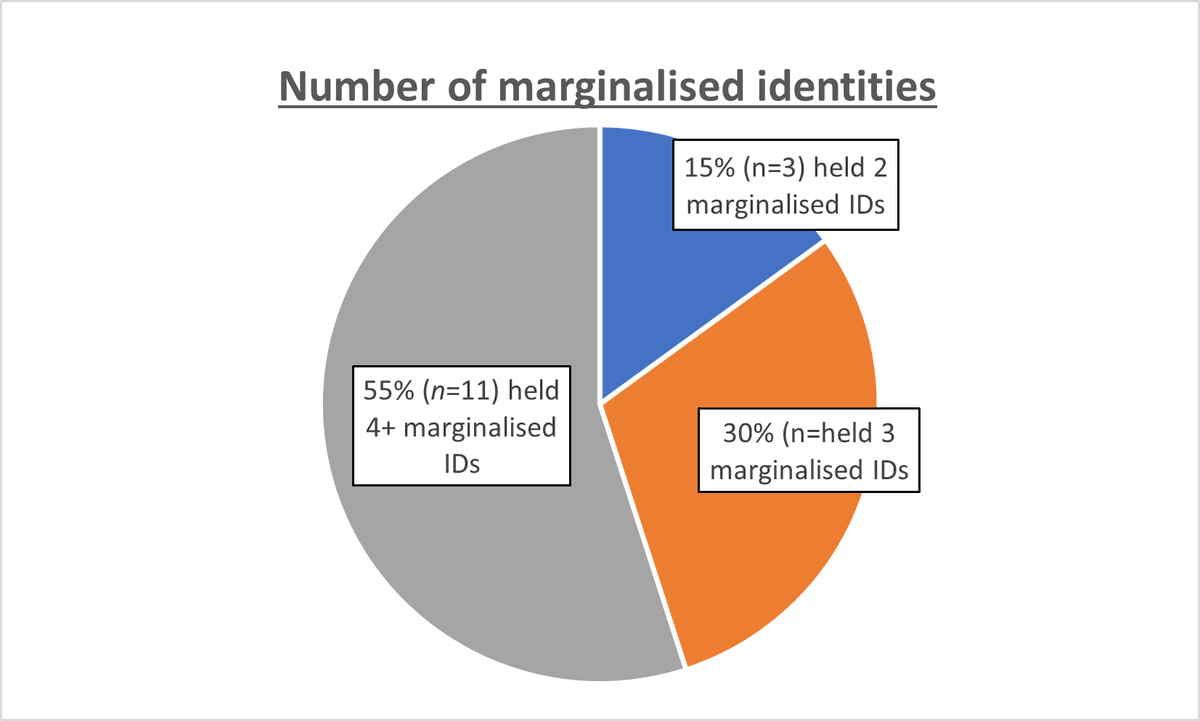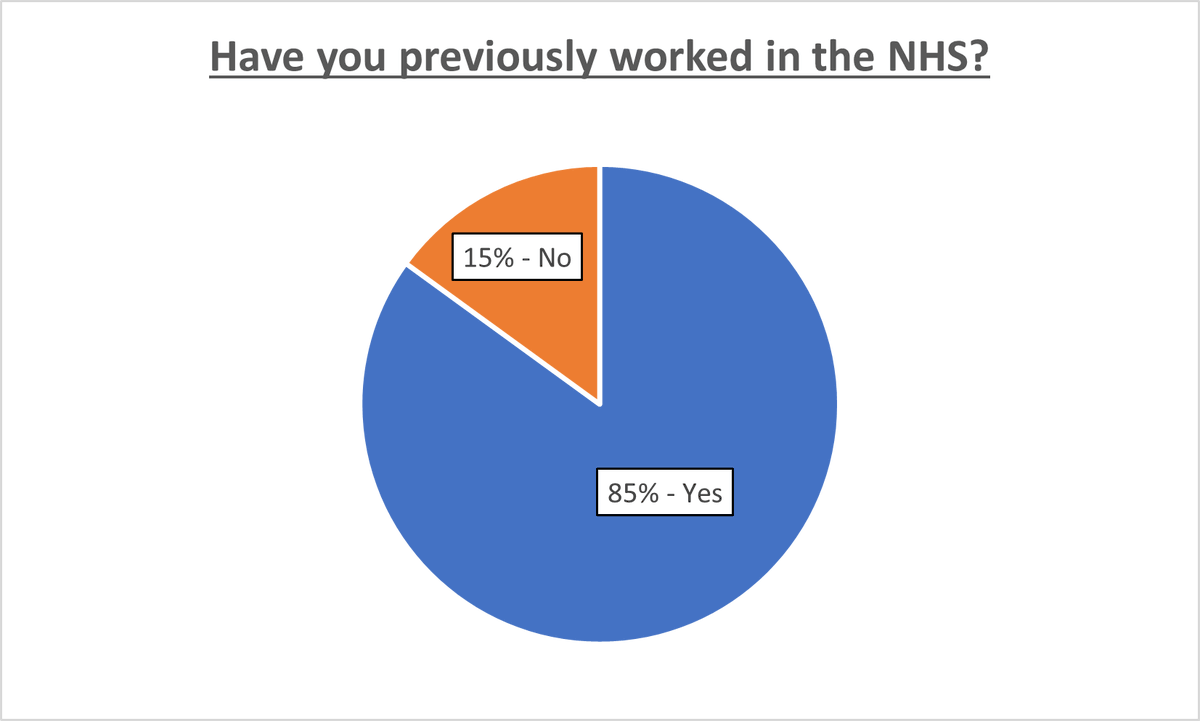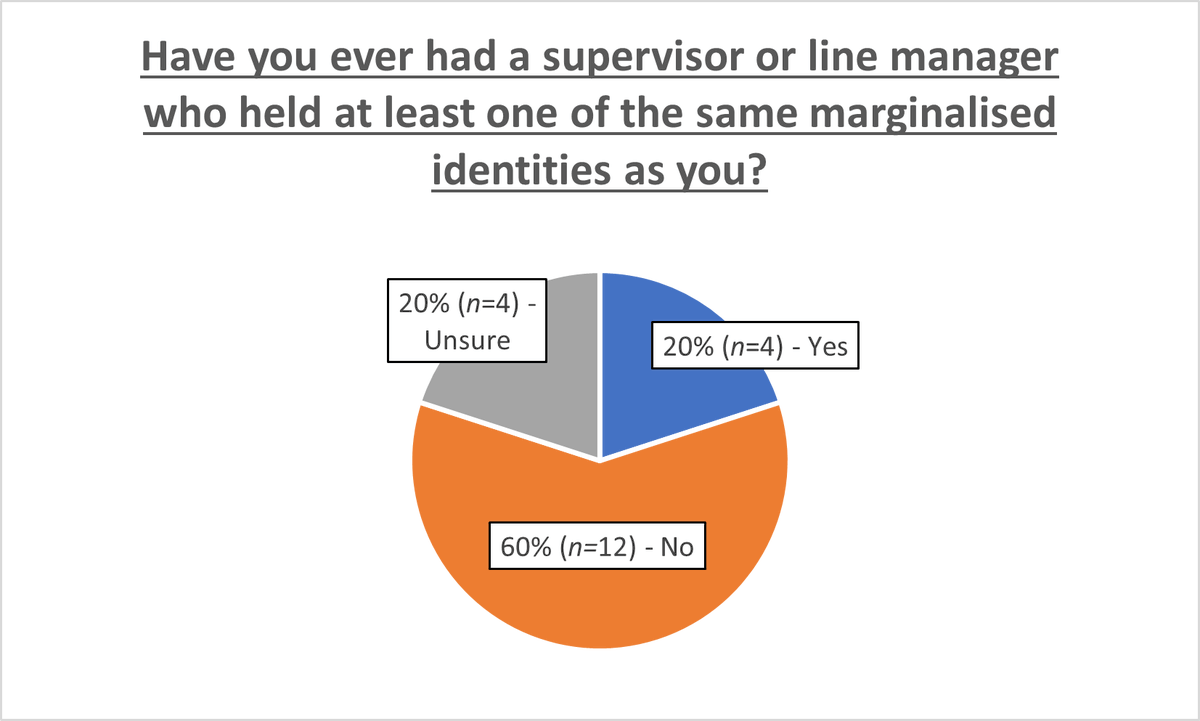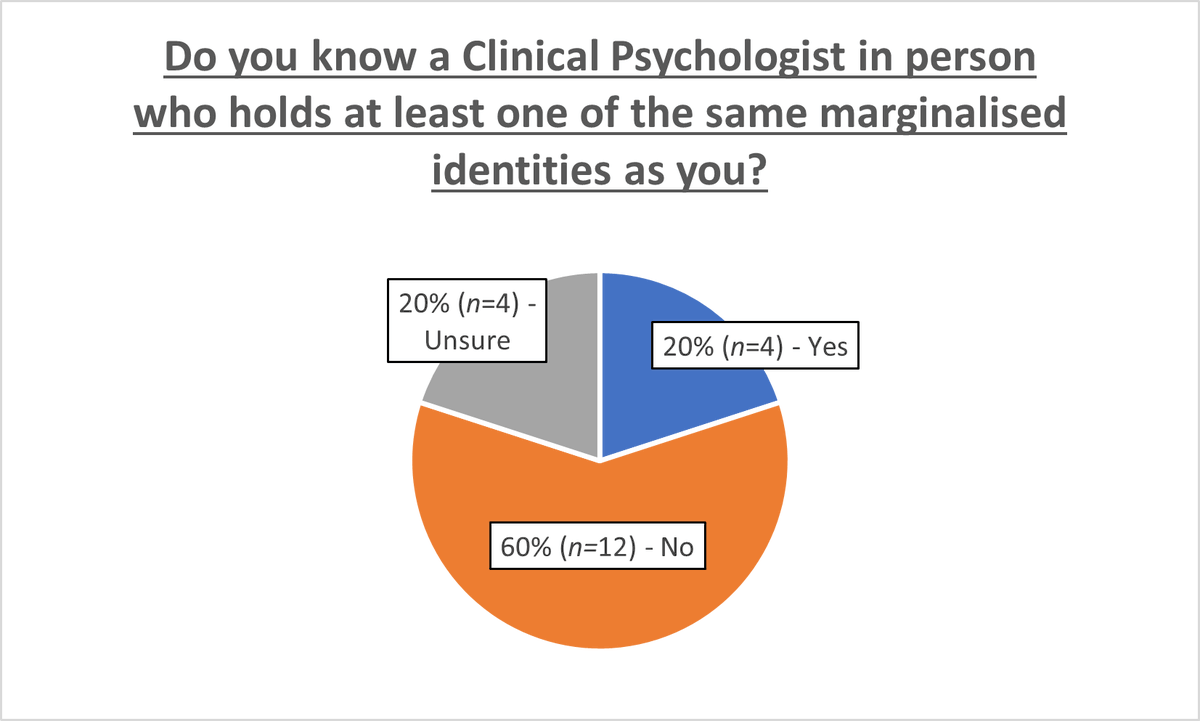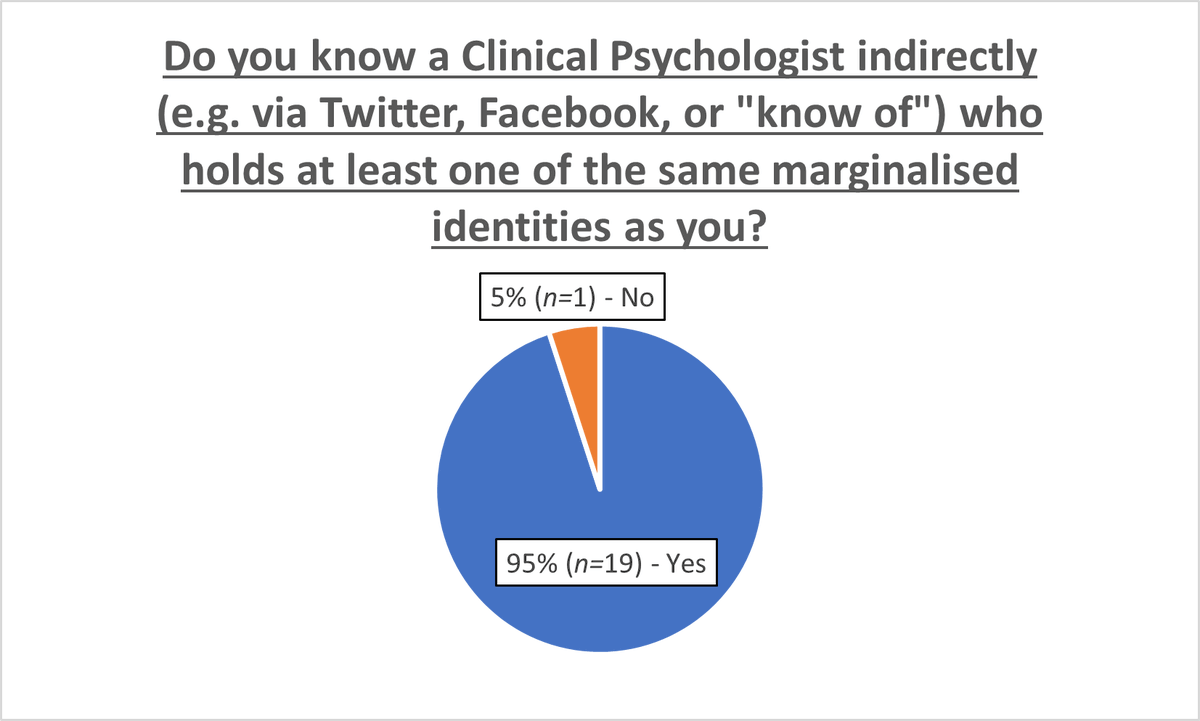1/ It's late, but here's the now annual  summarising some of the results from the 2020 round of #DClinPsych application reviews for marginalised applicants. I 'publicised' essentially only on Twitter this year & reviewed 22 applications. #ClinicalPsychology https://twitter.com/alienorlc/status/1203787544913154048
summarising some of the results from the 2020 round of #DClinPsych application reviews for marginalised applicants. I 'publicised' essentially only on Twitter this year & reviewed 22 applications. #ClinicalPsychology https://twitter.com/alienorlc/status/1203787544913154048
 summarising some of the results from the 2020 round of #DClinPsych application reviews for marginalised applicants. I 'publicised' essentially only on Twitter this year & reviewed 22 applications. #ClinicalPsychology https://twitter.com/alienorlc/status/1203787544913154048
summarising some of the results from the 2020 round of #DClinPsych application reviews for marginalised applicants. I 'publicised' essentially only on Twitter this year & reviewed 22 applications. #ClinicalPsychology https://twitter.com/alienorlc/status/1203787544913154048
2/ I was more organised this year! I sent a Google form in the email w the reviewed app so people knew review wasn't dependent on a response. All Qs optional, people could get in touch to have answers removed. 20 of the 22 applicants completed the form.
3/ First Q: Applicants asked to self-define their ethnicity, ONS list provided as examples. Examples of the ethnicities shared: Black, Roma/traveller, Asian (e.g. Pakistani, Indian, Bengali), 'white other' (e.g. from EU countries), 'White Scottish', etc.
4/ 2nd Q: Ppl were asked which experiences of marginalisation they hold.
Possible examples for 'other' (not actual responses) might be being a refugee/asylum seeker, being care experienced, experience of homelessness, young carer etc…
#DiversityandInclusion
Possible examples for 'other' (not actual responses) might be being a refugee/asylum seeker, being care experienced, experience of homelessness, young carer etc…
#DiversityandInclusion
5/ No one had only one marginalised identity. The greatest overlap was between "I am from a working class background" and "I am a first generation applicant" (not a big surprise to me). #ClassInClinicalPsychology
6/ 3rd Q: how many times had people applied for the #DClinPsych? Shows how competitive this process is. A few people were applying to get familiar with the process, rather than expecting a successful outcome.
7/ 4th Q: 85% (n=17) applicants had previously worked in the NHS. Across all applicants, people had been APs (clinical psych and ed psych), support workers, peer mentors, classroom assistants, social workers, MH nurses…
8/ The majority (60%, n=12) of applicants had never had a line manager or supervisor who shares at least one of their marginalised identities. So people aren't seeing themselves represented in leadership, management, etc.
9/ This was the same re: applicants knowing a CP in person who shares at least one of their marginalised identities. The majority of people aren't seeing themselves represented in their colleagues/peers either.
10/ For both these questions, 20% of respondents (n=4) were 'unsure'. Could be bc they don't want to assume, they've never discussed it, diversity isn't visible/celebrated, managers/supervisors/CPs don't feel safe being open about their identities…who knows. Worth questioning.
11/ On the other hand, 95% (n=19) of applicants indirectly knew a CP who shares at least one of their marginalised identities. Social media is a powerful way of connecting and representing! Likely also helped by amazing diversity&inclusion & mentorship work.
12/ 12 applicants answered the qualitative question included:
"If you have anything in particular you would like to share regarding your experience of applying to the DClin as a marginalised candidate, please write it here."
All consented to me sharing quotes on Twitter.
"If you have anything in particular you would like to share regarding your experience of applying to the DClin as a marginalised candidate, please write it here."
All consented to me sharing quotes on Twitter.
13/ To start off, on the process of writing an application as a marginalised applicant:
"I found it hard to know how much to disclose. I found that the 'any other factors' question word count was so small I struggled to fully explain my experiences."
"I found it hard to know how much to disclose. I found that the 'any other factors' question word count was so small I struggled to fully explain my experiences."
14/ "I feel you are expected to carefully pick one thing that has perhaps helped you build resilience (so, sanitising any 'messier' or more complex, interwoven personal experiences […]"
15/ There's a not-quite-formed thought here about needing to come across as contained and neat and tidy, with "adversity and marginalisation" neatly packaged into a box that slots in next to "academic achievement", "clinical experience", and "research skills"… 

16/ This year, I found many more applicants integrated their experiences into the main personal statement, rather than only mentioning them in the 'any other factors' section. It was really powerful to see people centring their experiences as ones that shape them as clinicians.
17/ People also spoke about how much their experiences have shaped their journey into #ClinicalPsychology as well as their practice: better understanding of client experiences, greater consideration of social factors, more cultural competence, shifting team culture.
18/ On class: some applicants mentioned feeling shame/insecure/anxious when talking about their backgrounds:
"I learned to censor myself; never mention my SES".
"I never thought I'd finish school, let alone go to university. I often feel like a fraud."
"I learned to censor myself; never mention my SES".
"I never thought I'd finish school, let alone go to university. I often feel like a fraud."
19/ Several people spoke about how they struggled to get relevant paid experience and frustration re: unpaid/honorary posts:
"I had to work full-time all thru uni & my marks suffered. Can't afford an honorary AP post."
"I had to work full-time all thru uni & my marks suffered. Can't afford an honorary AP post."
20/ BAME applicants highlighted both explicit and more subtle effects of racism and prejudice:
"I was told I have a chip on my shoulder bc I'm Black"
"I am a lot more unsure/under confident compared to my non-BAME counterparts"
"I was told I have a chip on my shoulder bc I'm Black"
"I am a lot more unsure/under confident compared to my non-BAME counterparts"
21/ Nearly all applicants, regardless of identities, mentioned feeling isolated/excluded/marginalised:
"All the teams I've been in have been all-white"
"just not feeling like I am wanted in the profession"
"I don't know anyone in person in psychology who is 'like' me"
"All the teams I've been in have been all-white"
"just not feeling like I am wanted in the profession"
"I don't know anyone in person in psychology who is 'like' me"
22/ People spoke about not feeling safe disclosing their lived experiences of mental health difficulties in case they were considered a 'liability' or 'unfit to practice':
"I've heard too many jokes made about service users to feel safe disclosing…"
"I've heard too many jokes made about service users to feel safe disclosing…"
23/ Lived experience was also a big incentive for people to apply - a few people spoke in emails/statements/the form that their experiences of mental health services had made them want to be the MH professionals they wish they had had - or to emulate excellent clinicians.
24/ The biggest thing that stood out to me was the role of supportive academic and clinical supervisors, mentors, colleagues, etc who can share institutional knowledge, e.g. navigating the NHS, the applications process, what to include in the form, what experience to get…
25/ Most importantly, mentors and supportive supervisors helped people feel that they *could* be successful.
"I cried when a CP who has had some of the same experiences as me told me they believed in me and thought I would be a great psychologist. I felt much less alone."
"I cried when a CP who has had some of the same experiences as me told me they believed in me and thought I would be a great psychologist. I felt much less alone."
26/ Some people mentioned to me in email that they had never applied before, but that the increased chat about diversity, inclusion, and marginalisation in CP made them feel more confident. Progress! #RepresentationMatters
27/ The amazing work being done to increase diversity in #ClinicalPsychology and make professionals more representative of the groups they serve is making a difference & leading to change - it's just a slow and steady process unfortunately.
28/ Next steps: I'm hoping that next year this can be a more formal piece of work. Maybe first year trainees starting this year could take on a bigger piece of analysis of this type of support as a thesis project? (DM me to chat if you want!)
Final/ I wish all applicants the very best of luck with this year's application cycle. Please remember that not receiving an offer does not reflect your worthiness, or the incredible asset that you could be to the profession. Good luck <3 #ClinicalPsychology #DClinPsych

 Read on Twitter
Read on Twitter